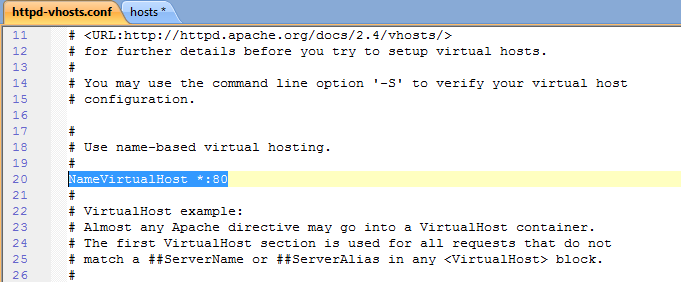The excerpts below show some example name-based VirtualHost configurations that can be used in Apache. For more detailed instructions, please see the official documentation.
Https Hosts File
For each TCP port that you want to use to serve content, you will need to define a Listen directive before configuring your VirtualHosts. When using Apache version 2.2.x or lower, each port will also need a NameVirtualHost directive.
Installing Apache Web Server. To get started, first update your CentOS 8 or RHEL 8 system package. P.s.: Don't forget to comment the previous exemple already present in httpd-vhosts.conf. Set your hosts system file: Go to: /etc/ folder find hosts file ( /etc/hosts ) I insert this: (but not sure to 100% if this good) 127.0.0.1 votemo.test::1 votemo.test - Open or Restart Apache.



Httpd Hosted
Basic setup, using port 80, with custom log files
Httpd Virtual Host Configuration
Basic setup, on port 80, with multiple virtual hosts
Basic VirtualHost with custom log files and authentication
SSL-enabled VirtualHost with custom log files

Warning: If you want to run multiple SSL vhosts on a single IP, see this article.





